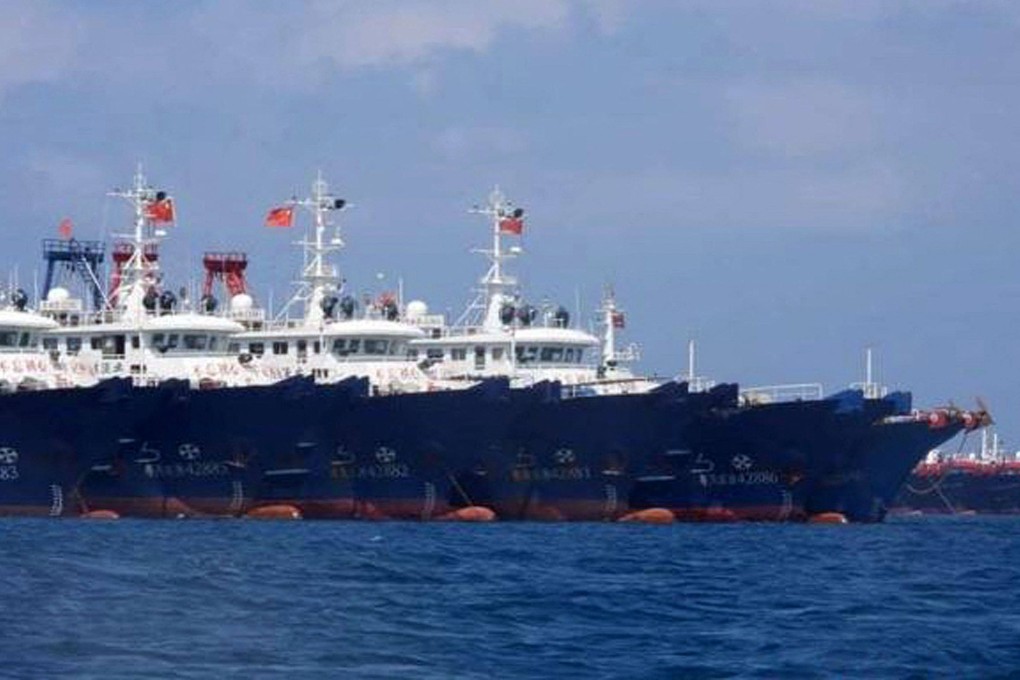Advertisement
‘Prelude to occupation’: worries flare in Philippines as Beijing tells US not to provoke confrontation over Chinese ships
- Foreign secretary Teodoro Locsin Jnr says the Philippines might invoke its defence treaty with the US to deal with presence of Chinese ships in its waters
- Duelling statements from the Chinese and American embassies have also fuelled anxiety and speculation in the Philippines
Reading Time:4 minutes
Why you can trust SCMP
5

Alan Roblesin Manila
Beijing could be testing Washington’s commitment to its allies with the incursion of ships believed to be manned by Chinese maritime militia personnel into Manila’s exclusive economic zone, analysts say.
Philippine officials on Sunday reported that about 220 Chinese vessels had been anchored at the Whitsun Reef, which Manila calls the Julian Felipe Reef, in the South China Sea since March 7.
There are growing concerns over the issue in the Southeast Asian nation, with the American and Chinese consulates both releasing statements in recent days. The Chinese Embassy in Manila said they were fishing vessels taking shelter from rough seas, while the United States embassy said the Chinese boats had been mooring in the area for many months in increasing numbers, regardless of the weather.
Advertisement
“China should stop twisting the truth … they’re making it appear that we’re hallucinating,” said Philippine Senator Risa Hontiveros on Wednesday. “It’s tiring having to deal with these distortions of truth on behalf of their national interest. China has stolen from us and now she is lying to us.”
Advertisement
Former supreme court justice Antonio Carpio on Wednesday told local media the gathering of the militia vessels was a “prelude to occupying Julian Felipe Reef”, adding that Beijing’s donation of Covid-19 vaccines to Manila could be a way of trying to lessen the impact of the incursion.
Advertisement
Select Voice
Choose your listening speed
Get through articles 2x faster
1.25x
250 WPM
Slow
Average
Fast
1.25x